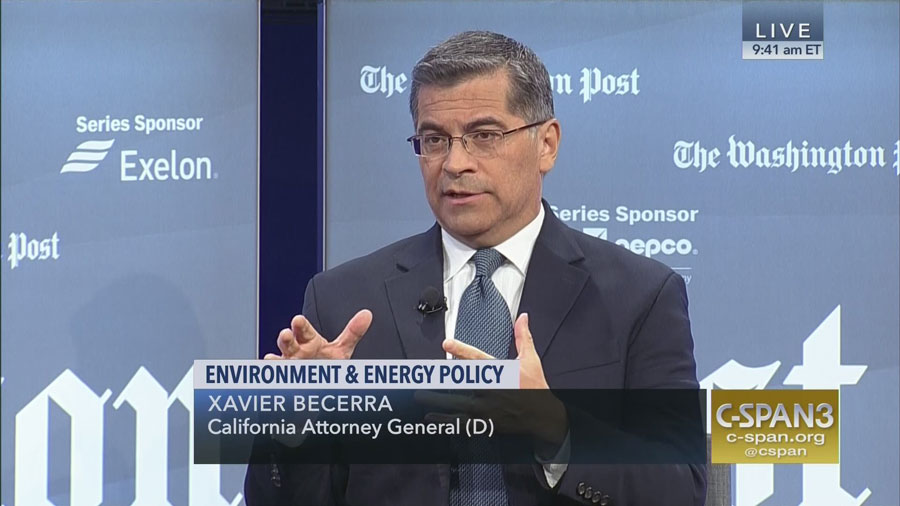
SAN FRANCISCO — Sutter Health has reached a tentative settlement agreement in a closely watched antitrust case brought by self-funded employers, and later joined by the California Attorney General’s Office. The agreement was announced in San Francisco Superior Court on Wednesday morning, just moments before opening statements were expected to begin.
While representatives for both sides confirmed they had reached a tentative settlement, they would not divulge details of the agreement, which must be approved by the court. Superior Court Judge Anne-Christine Massullo told the jury impaneled for the case that details likely would be made public during approval hearings in February or March.
There were audible cheers from the jury following the announcement that the trial, which was expected to last three months, would not continue. Officials with the attorney general’s office and Sutter Health declined requests for comment.
Sutter stood accused of violating California’s antitrust laws by using its market power to illegally drive up prices. Health care costs in Northern California, where Sutter is dominant, are 20% to 30% higher than in Southern California, even after adjusting for cost of living, according to a 2018 study from the Nicholas C. Petris Center at the University of California-Berkeley that was cited in the complaint.
The case was a massive undertaking, encompassing years of work and millions of pages of documents, California Attorney General Xavier Becerra said beforehand. If the plaintiffs prevailed, Sutter was expected to face damages of up to $2.7 billion.
The nonprofit giant has 24 hospitals, 34 surgery centers and 5,500 physicians across Northern California, with $13 billion in operating revenue in 2018. The state’s lawsuit alleged Sutter has aggressively bought up hospitals and physician practices throughout the Bay Area and Northern California, and exploited that market dominance for profit.
Among other tactics, it accused Sutter of employing an “all-or-none” approach to contracting with insurance companies, demanding that an insurer that wanted to include any one of the Sutter hospitals or clinics in its network must include all of them — even if some of those facilities were more expensive than a competitor.
Sutter Health consistently denied the allegations, saying its large, integrated health system offers tangible benefits for patients, including more seamless, high-quality care and increased access for residents in rural areas. Sutter also disputed that its prices are higher than other major health care providers, saying its internal analyses tell a different story.
The case was expected to have nationwide implications on how hospital systems negotiate prices with insurers. Even with details of the agreement not yet public, attorneys and patient advocates said they expect the settlement to mark a pivotal moment.
David Balto, a former federal regulator who is now an antitrust lawyer in Washington D.C., called the developments “precedent-setting.”
“You have all these metropolitan markets where you have large hospital systems, but Sutter Health in the Bay Area is like the filet mignon of the problem,” Balto said. “The problems in San Francisco are bigger than anywhere else. And you see that in how Sutter has exploited its market power to the nth degree.”
Sutter’s tactics were hard to challenge under antitrust law, Balto added. But “what [Becerra] did was bring together hard facts with top-notch scholarship proving there was an overwhelming problem and that Sutter’s strong-arm tactics were the cause of the problem.”
Anthony Wright, executive director of the advocacy group Health Access California, said he wasn’t privy to the settlement details, but that he expected it to include “some meaningful remedies in terms of adjusting some of the anti-competitive practices and contract provisions that Sutter has advanced over the years.”
“While we await the details of the settlement,” he said, “the lawsuit itself sends a strong signal to hospital chains across the nation and all health care providers planning to adopt predatory prices.”
Jaime King, associate dean and a professor of law at UC Hastings College of the Law, said Sutter’s decision to settle “in some ways is not a surprise. On the eve of trial, we often see big settlements.”
Still, she said, it comes at a cost: “I think it’s a shame we won’t ever get to see the evidence that would have been brought forward in this case about Sutter’s contracting and pricing practices. There are a lot of very large health systems that are charging a lot of money for their services, and this case had the opportunity to give us much more insight into what we’re spending our health care dollars on.”
Sutter continues to face trial on a separate federal antitrust lawsuit.



Comments are closed.